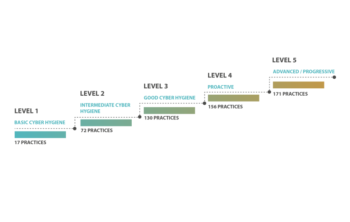3-minute read
There’s only so much time in a day, right? As a business owner and manager, your job is to, well, manage. A core management skill is Delegation. Learning to delegate well isn’t just about shifting stuff from your To Do list to someone else’s. Nor is it about avoiding tasks you don’t like (by making someone else do it) or monopolizing tasks you do like (and not giving the others the chance).
Delegating tasks and responsibilities is an important part of empowering and growing your staff so they feel fulfilled, and like they’re making a positive contribution at work. A good manager who delegates well and supports their team plays a powerful leadership role in the business, boosting morale, improving employee engagement, and creating a positive, productive environment at work.
When new businesses join the ranks of Way We Do, we sometimes find that initial “Now we can work more effectively and get down to the job of growing our business!” excitement can quickly turn to “I had no idea how many processes we really had and how am I going to get it all done?” dread.
But breathe easy. That’s why you have a team. And you’re the coach.
Like a football team, each of your staff has a role to play, and they know it well. They know their job and their processes like no other. So delegate that stuff, bro! Talk to your team about the time they’ll be saving with less double-checking and second-guessing; the greater levels of autonomy they’ll have in their roles as they check and correct their own processes; and the more collaborative relationships they’ll have with colleagues, independent of location.
“A problem shared…”
With that picture now vividly shimmering in their minds, point them towards the Way We Do platform and show them how to get started. We highly recommend they first brainstorm a list of the different activities and tasks they perform as part of their job — this includes regular activities, as well as the ad hoc, or infrequent ones. Depending on your team’s structure (and where they’re based), you may want them to workshop this together, or do it individually. Whichever you go with, make sure your staff collaborate with their colleagues and supervisors to coordinate processes that involve more than one person’s contributions.
If you do opt for the individual approach, keep an eye on how they’re handling the assignment. Depending on their levels of confidence and capability, your staff may be fine to get this task done on their own, or they may need some extra guidance from you. Either way, you’ll be doing more of the leading work of a manager, and less of the doing work of an employee. You’ll be better able to coordinate the bigger picture (management), and less and less drawn into the finer details of the execution (worker).
Once they’ve built their lists, let them get down to the task of writing their procedures. Remember, you’ll need to be on hand to help them navigate the new system (and of course, you and your team will have support@waywedo.com to call on whenever you need it too), and check in on those who may need extra help — just like a coach. And like a coach, you’ll need to make sure their individual plays are fitting into your overall strategy.
So now, you’ve broken down what would have been a daunting task for an individual (you thought you’d have to do it, didn’t you?), and turned it into an opportunity for your staff to learn, collaborate, and take ownership of their work. Like a boss!





